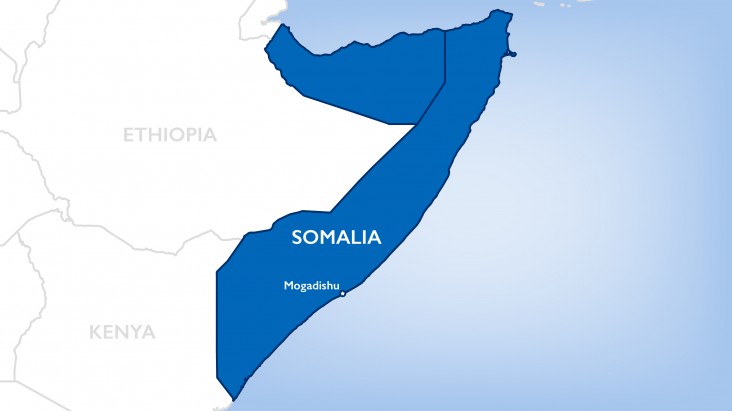- What We Do
- Agriculture and Food Security
- Democracy, Human Rights and Governance
- Economic Growth and Trade
- Education
- Environment and Global Climate Change
- Gender Equality and Women's Empowerment
- Global Health
- Humanitarian Assistance
- Transformation at USAID
- Water and Sanitation
- Working in Crises and Conflict
- Disaster Assistance
- Stabilization and Transitions
- Where We Work
- Afghanistan
- Armenia
- Bosnia and Herzegovina
- Burkina Faso
- Colombia
- Ethiopia
- Iraq
- Libya
- Malaysia
- Mozambique
- Niger
- Nigeria
- Sudan
- Ukraine
- Closed Programs
- Afghanistan
- Albania
- Angola
- Bolivia
- Bosnia & Herzegovina
- Burma
- Burundi
- Chad
- Colombia
- Croatia
- Cuba
- Côte d'Ivoire
- Democratic Republic of Congo
- East Timor
- Guatemala
- Haiti
- Honduras
- Indonesia
- Iraq
- Kenya
- Kosovo
- Kyrgyz Republic
- Lebanon
- Liberia
- Mali
- Nepal
- Nicaragua
- Nigeria
- North Macedonia
- Northern Cameroon
- Pakistan
- Peru
- Philippines
- Rwanda
- Serbia and Montenegro
- Sierra Leone
- Somalia
- South Sudan
- Sri Lanka
- Sudan
- Syria
- Tunisia
- Uganda
- Venezuela
- West Bank/Gaza
- Yemen
- Zimbabwe
- Background
- Criteria for Engagement
- Multi-Media
- Opportunities
- Our Stories
- Where We Work
- Conflict Mitigation and Prevention
- Countering Violent Extremism
- Disaster Risk Reduction
- Peacebuilding and Reconciliation
- Recovering From Crisis
- Resilience
- Tech Challenge for Atrocity Prevention
- Women, Peace, and Security
- World Humanitarian Day
- U.S. Global Development Lab
Speeches Shim

Providing stabilization support to local governments, civil society and communities previously under the control of al-Shabaab.
2007-2008
WHY USAID/OTI WAS IN SOMALIA
USAID/OTI started programming in Somalia in 2007 to foster peace and reconciliation by encouraging inclusive dialogue and processes necessary for the formation of a government of national unity within the framework of the Transitional Federal Charter in the lead-up to the 2009 elections.
USAID/OTI'S ROLE IN SOMALIA
In support of the National Reconciliation Congress (NRC), USAID/OTI funded the U.N. Development Programme's (UNDP) peace and reconciliation program in Somalia to promote independence and strengthen the capacity of the National Governance and Reconciliation Committee (NGRC), which was tasked with organizing the NRC. UNDP provided technical assistance and advice to the NGRC, served as a coordinating mechanism for the International Advisory Committee Working Group and promoted progress toward completion of essential tasks related to NRC implementation.
PROGRAM HIGHLIGHT
USAID/OTI and USAID's Office of Conflict, Mitigation and Management supported the implementation of the NRC. A successful and inclusive NRC furthered the mandate of the Transitional Federal Charter by broadening and formalizing genuine political dialogue and addressing critical issues of political and social reconciliation.
2016-2020
WHY USAID/OTI WAS IN SOMALIA
Somalia’s transition toward stability was threatened by political volatility and security vulnerability. Despite losing control of significant territory, al-Shabaab (AS) remained a resilient insurgent force capable of launching attacks that seek to discredit the government, demoralize communities, and destabilize large areas of the country. Effective government presence remained fragile and fleeting around key population centers and along main supply roads, which often reduced recovered towns to isolated islands and constricted freedom of movement, economic activity, and humanitarian access. The U.S. Government recognized the dangers that continued insecurity poses to East Africa, and committed to helping Somalia address the drivers of instability.
USAID/OTI’S ROLE IN SOMALIA
To support the political and security transition in Somalia, USAID/OTI targetted the conditions that enable violent extremist groups to destabilize the country. Working in front-line areas of Jubbaland State and South West State, USAID/OTI used a flexible, cross-sectoral approach to partner with local government, civil society, and local communities, amplifying their engagement through media and strategic communications. USAID/OTI’s objectives in Somalia included:
- Extending the presence of effective state authority in newly recovered areas;
- Strengthening reconciliation initiatives to bolster security and political gains; and
- Productively engaging at-risk youth to deter recruitment by violent extremists.
PROGRAM HIGHLIGHTS
- USAID/OTI consolidated security gains, established government presence, and laid a foundation for humanitarian and development assistance in areas recovered from AS around Kismayo. As a result, the Government of Somalia reclaimed 30 miles of territory along the road from Kismayo to Jamaame, expanded secure road access through brush clearance activities, and enabled over 1,000 families to return to recovered areas.
- USAID/OTI expanded the coverage of Radio Kismayo and Radio South West, which potentially reached over 4 million people in rural and hard-to-reach areas that were core stabilization priorities for the Somali Government as well as key recruitment grounds for AS.
- In support of the Government of Somalia's efforts to secure and stabilize Lower Shabelle, USAID/OTI provided assistance with community consultations, early recovery projects, and efforts to connect citizens with the government.

Comment
Make a general inquiry or suggest an improvement.